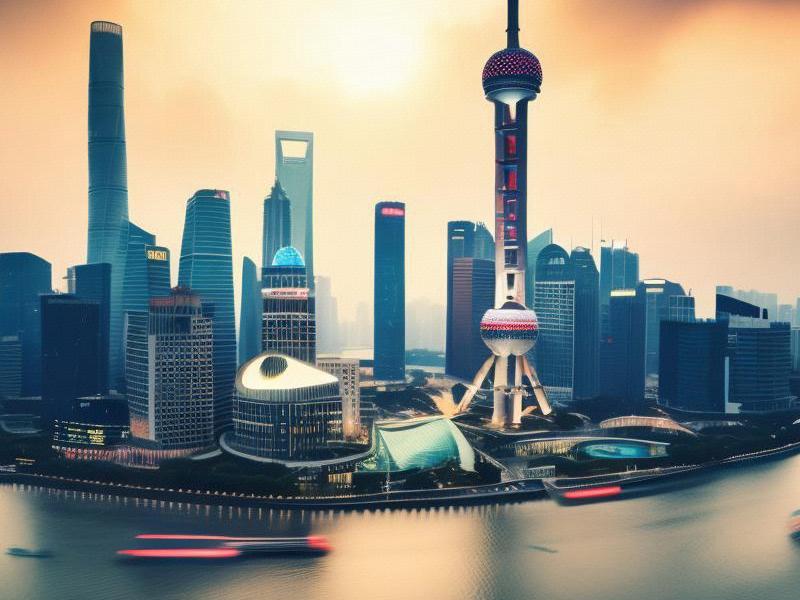Shanghai's Economic Growth and Challenges
⏱ 2025-05-02 22:20 🔖 爱上海娱乐联盟
📢0℃

Shanghai, the bustling metropolis on the banks of the Huangpu River, has long been a symbol of China's economic transformation. Over the past few decades, the city has witnessed unprecedented economic growth, becoming one of the world's leading financial centers and a hub for international trade and commerce. However, as Shanghai continues to rise, it also faces a myriad of challenges that threaten to hinder its progress.
Economic Achievements
Shanghai's economic growth has been nothing short of remarkable. In the early 1990s, the Chinese government designated Shanghai as a Special Economic Zone, granting it greater autonomy in economic development. This strategic move unleashed a wave of investment and innovation, propelling the city to the forefront of China's economic reform.
Today, Shanghai boasts the highest GDP per capita among Chinese cities, a testament to its economic prowess. The city is home to the world's busiest container port, the Shanghai Stock Exchange, and a thriving financial district. Its skyline, dominated by iconic skyscrapers like the Oriental Pearl Tower and the Shanghai Tower, is a visual representation of its economic might.
The service sector, particularly finance, real estate, and trade, forms the backbone of Shanghai's economy. The city attracts multinational corporations, foreign investors, and talented professionals from around the globe. Its cosmopolitan culture, advanced infrastructure, and business-friendly environment make it an ideal destination for global commerce.
Challenges to Growth
上海龙凤419会所 Despite its impressive achievements, Shanghai faces several challenges that could impact its continued growth. One of the most pressing issues is the strain on its urban infrastructure. As the population grows and the economy expands, the city struggles to keep up with the demand for housing, transportation, and public services.
Housing affordability has become a significant concern. The rapid rise in property prices has made it increasingly difficult for middle-class families to afford homes. The government has implemented various measures, such as限购政策(purchase restrictions,购买限制)(purchase restrictions) and 增加土地供应(increasing land supply,增加土地供应), to stabilize the real estate market, but the problem persists.
Transportation is another critical area of concern. Shanghai's public transportation system, while extensive, faces challenges in managing the sheer volume of daily commuters. The city has invested heavily in metro lines and bus networks, but traffic congestion remains a major issue. The recent introduction of共享单车(shared bicycles,共享单车)(shared bicycles) and网约车(ride-hailing services,网约车)(ride-hailing services) has provided some relief, but more sustainable solutions are needed.
Environmental sustainability is yet another challenge. Rapid industrialization and urbanization have led to air pollution, water contamination, and waste management issues. Shanghai has taken steps to address these concerns, such as promoting green energy, implementing stricter environmental regulations, and investing in public transportation. However, achieving a balance between economic growth and environmental protection remains a daunting task.
Global Competitiveness
In the global arena, Shanghai faces intense competition from other major cities. Cities like Hong Kong, Singapore, and Tokyo are vying for the same pool of international businesses and talent. To maintain its competitive edge, Shanghai must continue to innovate and adapt to changing global dynamics.
上海贵族宝贝自荐419
One area where Shanghai excels is in fostering innovation and entrepreneurship. The city has established numerous科技园区(science and technology parks,科技园区)(science and technology parks), such as张江高科技园区(Zhangjiang High-Tech Park,张江高科技园区)(Zhangjiang High-Tech Park), to support high-tech industries and startups. These parks provide state-of-the-art facilities, access to funding, and a conducive environment for innovation.
Shanghai also recognizes the importance of education and talent development. The city has invested heavily in universities and research institutions, attracting top-tier academics and researchers. Programs like上海自贸区(Shanghai Free Trade Zone,上海自贸区)(Shanghai Free Trade Zone) have further enhanced the city's attractiveness to foreign investors and multinational corporations.
Balancing Growth and Sustainability
To ensure long-term sustainable growth, Shanghai must address the challenges it faces while continuing to innovate and expand its economy. The government has implemented various strategies to achieve this balance.
One key strategy is the推动产业升级(promoting industrial upgrading,推动产业升级)(promoting industrial upgrading) of traditional industries and fostering the development of high-tech and green industries. This involves investing in research and development, supporting innovation, and encouraging the adoption of clean technologies.
上海品茶网 Another important strategy is加强城市规划(strengthening urban planning,加强城市规划)(strengthening urban planning) to manage the challenges of urbanization. This includes developing smart city solutions, improving public transportation, and enhancing the quality of housing and public services.
Environmental protection is also a top priority. Shanghai has set ambitious targets for reducing carbon emissions, increasing energy efficiency, and promoting renewable energy. The city is investing in green infrastructure, such as parks and urban forests, to improve air quality and enhance the quality of life for its residents.
Conclusion
Shanghai's economic growth has been a remarkable success story, transforming the city into a global financial hub and a symbol of China's economic rise. However, the challenges it faces—ranging from urban infrastructure strain to environmental sustainability—are significant and require careful management.
By fostering innovation, strengthening urban planning, and prioritizing environmental protection, Shanghai can continue to grow and maintain its position as a leading global city. The city's ability to balance economic expansion with sustainable development will determine its future success and its role in shaping the global economy.
As Shanghai looks to the future, it must remain adaptable and forward-thinking, embracing new technologies and ideas to address emerging challenges. With its resilient spirit and commitment to progress, Shanghai is well-positioned to overcome its obstacles and continue its journey as a beacon of economic growth and innovation.
In conclusion, Shanghai's story is one of both triumph and tribulation. Its economic achievements are a source of pride, but the challenges it faces serve as a reminder that growth is not without its difficulties. By addressing these challenges head-on and continuing to innovate, Shanghai can ensure a prosperous future for its residents and a prominent place on the global stage.
Shanghai’s Fintech Renaissance: Where Bund Architecture Hosts Blockchain Revolution【外滩18号的秘密:百年建筑里的爵士复兴】Shanghai 4450: Quantum Nightlife Nexus and the Galactic Entertainment Singularity《夜上海的华丽转身:从百乐门到外滩十八号》《夜上海的三个瞬间:从礼查饭店到复兴艺术中心》Shanghai’s Quantum Nightlife: Where Imperial Gardens Host Blockchain-Powered Revelries【钢与梦的交响:上海天际线的百年叙事】Shanghai’s Green Renaissance: Where Ancient Waterways Fuel Quantum Innovation【灶披间到智能厨房:上海弄堂里的烟火进化史】Shanghai 4550: Quantum Delta Renaissance and the Galactic Sustainability Matrix

